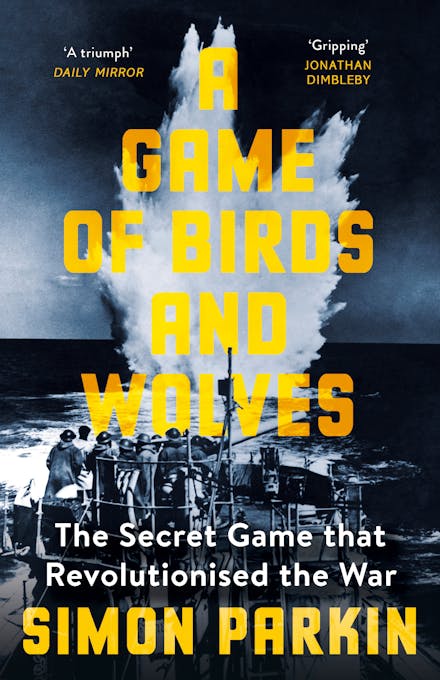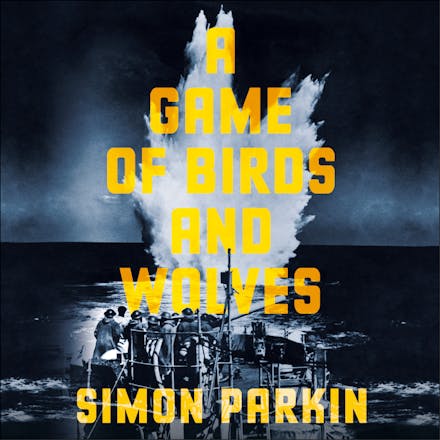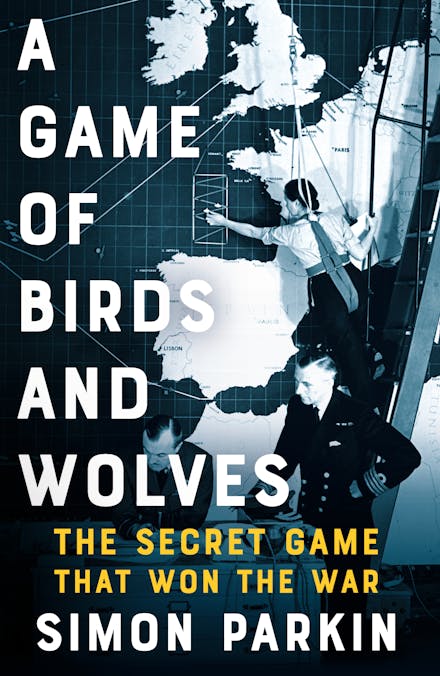Imprint
- Sceptre
- Sceptre
- Sceptre
Atlantic Ocean, Maritime history, Military history, Naval forces & warfare, Defence strategy, planning & research
-

Imprint
Sceptre
- Paperback Jan 27, 2021 | 9781529353211 | RRP $24.99 Buy Now
- Audiobook Nov 7, 2019 | 9781529353228 | RRP $46.99 Buy Now
- e-Book Nov 7, 2019 | 9781529353051 | RRP $12.99 Buy Now
Play Sample0:00 -

Imprint
Sceptre
- Paperback Jan 27, 2021 | 9781529353211 | RRP $24.99 Buy Now
- Audiobook Nov 7, 2019 | 9781529353228 | RRP $46.99 Buy Now
- e-Book Nov 7, 2019 | 9781529353051 | RRP $12.99 Buy Now
Play Sample0:00 -

Imprint
Sceptre
- Paperback Jan 27, 2021 | 9781529353211 | RRP $24.99 Buy Now
- Audiobook Nov 7, 2019 | 9781529353228 | RRP $46.99 Buy Now
- e-Book Nov 7, 2019 | 9781529353051 | RRP $12.99 Buy Now
Play Sample0:00
A gripping tale of war at sea about how a game of battleships, and a group of exceptional young women, won the Second World War.
It's 1941. Imagine you're Winston Churchill.
The Battle of the Atlantic is a disaster. Supply ships ferrying vital weapons, food and fuel from North America are being torpedoed by the German U-boats.
You are concealing from the country the number of ships sunk. You are concealing the number of men killed. Without the supply ships Britain will starve. The tide of the war is turning in Germany's favour.
This is the story of the game of battleships that won the Second World War. In 1941 Prime Minster Winston Churchill gathered a group of unlikely heroes - a retired naval captain and eight brilliant young women, the youngest only seventeen years-old - to form a secret strategy unit. On the top floor of a ramshackle HQ in Liverpool, the Western Approaches Tactical Unit spent day and night playing war games to crack the U-boat tactics.
A GAME OF BIRDS AND WOLVES takes us from the steamy fug of a U-boat as the German aces coordinate their wolfpack, to the tense atmosphere of operation room as the British team plot battles at sea on the map. The story of Operation Raspberry and its unsung heroines has never been told before. Investigative journalist Simon Parkin brings these hidden figures into the light in this gripping tale of war at sea.
Praise for A Game of Birds and Wolves: The Secret Game that Revolutionised the War
-
[A] splendid new history of the war in the Atlantic . . . Simon Parkin's book rips along at full sail and is full of personality and personalities. Above all, it brings a barely known aspect of the sea war out into the light. Which is a triumph in itself. - Sunday Express
-
Sheds compelling new light on the ferocious struggle being played out in the mid-Atlantic ... [A Game of Birds and Wolves] has all the elements of a film - Sunday Times
-
In a riveting, intricately researched book, Simon Parkin tells the previously unknown story behind the Allied victory in the Atlantic during World War II. It's an underdog's tale - not only of British supply fleets trying to outrun German U-boats, but also of the women game designers who made that victory possible. - Ian Bogost, Ivan Allen College Distinguished Chair in Media Studies at the Georgia Institute of Technology; Contributing writer at The Atlantic, and author of PLAY ANYTHING
-
A triumph - Daily Mirror
-
Engaging and skilful . . . [Parkin] writes with real flair and the human side of this story is brought out with fine vignettes and character sketches . . . If the place of women in Britain's naval war has been played down, Parkin's vivid story recovers it handsomely . . . Inside his narrative is a desire to show how ordinary people did extraordinary things in wartime . . . this is a good read on a corner of the war and the men and women who peopled it - one very much worthy of our attention. - Guardian
-
History writing at its best - Booklist (starred review)
-
With novelistic flair, Parkin transforms material gathered from research, interviews, and unpublished accounts into a highly readable book that celebrates the ingenuity of a British naval 'reject' and the accomplishments of the formerly faceless women never officially rewarded for their contribution to the Allied defeat of Germany. A lively, sharp WWII history. - Kirkus Reviews
-
This is a thrilling story, compellingly told - History Revealed

Simon Parkin
Simon Parkin is an award-winning British writer and journalist. He is a contributing writer for the New Yorker and a fellow of the Royal Historical Society (RHS), and is the author of A Game of Birds and Wolves and The Island of Extraordinary Captives, which was a New Yorker Book of the Year and won the Wingate Literary Prize. He lives in West Sussex.




























.png?auto=compress&w=150&h=60&fit=crop&fm=jpg)

.png?auto=compress&w=150&h=60&fit=crop&fm=jpg)


